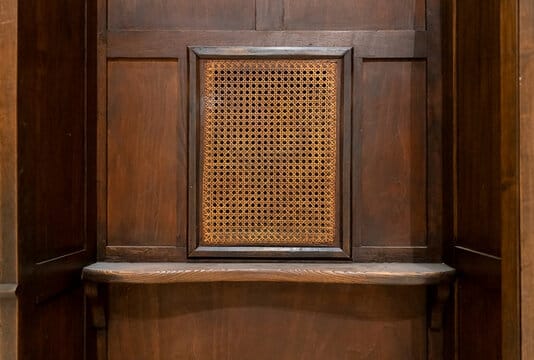God's Beet Field

I lived in sugar beet country for a few years. My house sat next to railroad tracks that were desolate except for beet season, when long, slow cars—brimming with dirty beets—would pass by at all hours. The roads I drove to work became filthy as the trucks pulled in and out of the fields, leaving behind mud and the occasional stray beet. At the time, I worked the midnight shift and would pass miles of beet fields, illuminated by generator-powered lights, truck headlights, and light bars. Every year was a race to harvest and haul, and once the last truck rolled away, the frenzy vanished without a trace.
Eventually, the beets make their way to processing plants, which have a unique smell not indicative of the product manufactured there. That sugar is then packaged, distributed, and finally ends up in spoons, stirring coffee, or in measuring cups carrying contents for cakes.
Whether you live or grew up in rural ag-land, you likely have some sense that what I just described is more or less how your food gets from where it’s grown to where it’s going. The prevalence of “No Farms No Food” bumper stickers indicates that the realities of modern agriculture have crept into the fabric of society—if only as a passing thought when looking for knee-high corn or a perfect pumpkin.
Who is most important in this complicated, coordinated effort to grow, harvest, distribute, and prepare the food we eat? The Teamsters have their answer, the laborers have theirs, and the farmer has his. Yet COVID, natural disasters, and labor shortages have proven time and again that disrupting any link in the chain throws the entire system into chaos. As Jedi Master Qui-Gon Jinn said, they are in a symbiotic relationship.
The Vineyard Parable and Our Labor
Why do the laborers in the parable of the vineyard (Matthew 20:1–16) all receive equal pay, despite unequal work? Many sermons and study Bibles conclude that this illustrates God’s grace—and that our merits do nothing to achieve or earn what God elects to give freely.
While this is an essential theological reality that, like many parables, reveals the nature of the Father as well as our humanity, what does it teach us about ourselves and those we labor with?
First and foremost, you have to show up to work and be in the right place. There are other vineyards to labor in, all of them worldly and corrupted by degrees. We aren’t concerned with them. We know the wage paid out to all those who commit their life’s labor to that rotten orchard. St. Paul tells us plainly in Romans that “the wages of sin is death.”
If you’re in the right vineyard, does it still matter what time you showed up? To us, it certainly does—it means the difference between working all day, half a day, or just an hour or two. I know my day always feels a bit easier to bear when it’s cut short on either end.
Yet in the context of the interior life, those who labor long may have it easier. Think of St. Bernadette of Lourdes, of St. Thérèse of Lisieux, or Joan of Arc. The Church is full of saints who died young and suffered much. On the other hand, there are Padre Pio, Mother Teresa, and others who bore lifelong suffering. All labored, all loved, and all are saints. Do we argue amongst ourselves who is the greater?
What Kind of Work?
Apart from the duration of our labor, there is the job itself. In God’s harvest, many tasks are required: someone needs to drive the truck, someone needs to load it, and someone needs to operate the plant that receives the truck’s cargo. Is one job more worthy—more inherently holy—than another? Do we argue as the Apostles did about who is first, who sits where?
“Who is God’s favorite?” sounds like a ridiculous question—because it is. Yet that’s at the heart of so many of our interactions with our fellow laborers.
Does God approve more of the woman who veils because she has sat in hours of prayer and reflection and is convicted it is the only proper way to approach Him and the sacred mystery of the Mass, or the one who sits next to you who is a stranger, sitting in the pew for the first time in years?
Does He take more joy when I receive communion at a rail and on the tongue because I cannot help but bend my knee before Him, or the man I squeezed past, who remains seated because his annulment was denied twenty years ago?
Does the Rosary offered in the Adoration Chapel for the souls of the departed have more merit than the lay contemplative’s silent prayer of quiet in that same chapel?
Do you know the answer?
I surely do not.
The Labor of the Heart
All I know is that I too often complain that someone worked less than I did and received the same wage. I do not account for their spiritual journey or progress, or the labor God has called them to. I sit in the empty beet field, wiping my brow and congratulating myself for all the hard work, while the truck driver and sugar plant operator are just beginning their labor.
We might accept the lesson from the arguing Apostles, and know it’s silly to ask who the “best” saint is.
But can we look across the beet field and stop the impulse to wonder: “Who is worse?”





Member discussion